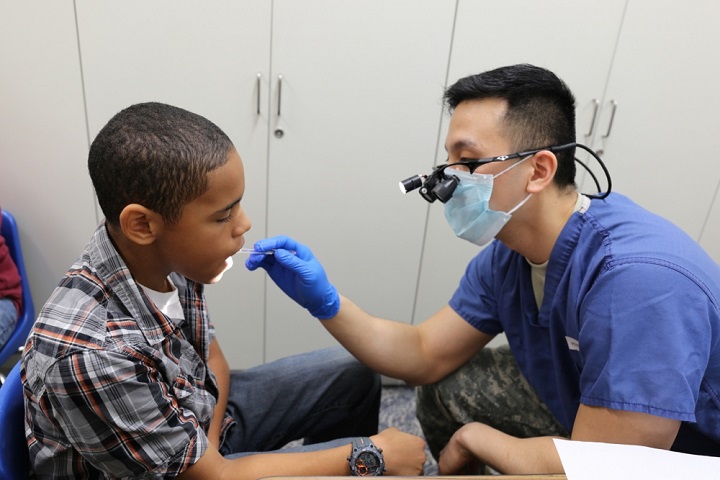All You Need to Know About Sleep Dentistry

Types of Water Filters for Homes
May 21, 2020The Importance Of A Marketing Consultant
November 2, 2020Many people feel the fear of going to a dentist that is one of the most prominent reasons for dental problems. When people think of sitting in a dentist’s chair and the dentist probing in their mouth, they can feel the fear and anxiety before visiting.
People who don’t visit a dentist due to the fear of pain are likely to worsen their teeth and gum problems, which will ultimately make them visit a dentist for treatment. Sleep dentistry is a process that dentists use to make the patient relax and overcome the fear and anxiety of treatment.
Sleep or sedation dentistry is a boon for people who are always in fear of visiting a dentist. It helps them relax by using some medications and continue with the treatment for their oral problems. Let us explore everything that you should know about sleep dentistry.
What is Sleep Dentistry?
Many people are afraid of dental procedures. They are concerned about the pain they may experience, as well as their vulnerability and potential discomfort.
Before or during the dental treatment, the dentist administers a sedation drug that makes the patient totally unconscious. The other forms will relax you, but they won’t completely knock you out.
The most common forms of dentistry involving sedation include:
Nitrous oxide: A gas that will calm you during the treatment. It wears off quickly, so after the appointment maybe your dentist will let you drive home.
Oral sedatives: Oral sedatives, like diazepam, also help patients to relax during dental procedures. Typically, you take them about an hour before your appointment. You ‘re completely awake but less anxious, and you may feel a little sleepy until it’s wearing off.
Intravenous sedatives: Intravenous, or intravenous, sedatives can put you in different stages of awareness. This is also known as general anesthesia and will place you in a deep sleep before it wears off.
Advantages of Sleep Dentistry
Relief of Anxiety
The most significant benefit of sleep dentistry is that it can provide the patient’s relief from anxiety. Of course, it is the greatest advantage of sedation dentistry to alleviate or remove fear and anxiety. After all, what is better for a nervous patient from being given better oral healthcare and reduce the risks of tooth decay, gum disease, infection, and tooth loss?
Amnesia Anterograde
While amnesia may not be the desired result in many cases, it is highly desirable in sedation dentistry. The phobia many people have about the dentist normally derives from a traumatic childhood encounter, and with each subsequent visit, the fear typically increases.
It is especially true if the patient has any discomfort. There can be no additional phobia of sedation dentistry, however, because the mind cannot construct new memories. This can also raise the patient’s concerns during subsequent visits.
Controls Gag Reflexes
In patients with sensitive gag reflexes, sedation can be especially helpful, so that they relax and doze while being cared for, without succeeding in the undeniable drive to choke or sputter. Gagging uses psychological and physiological responses as well as mild sedatives such as nitrous oxide or oral sedatives to address both problems to increase the convenience of dental printing, refill, and even x-rays.
Eliminate the fear of needles

Many dental procedures with local anesthetics are possible without pain, but fear of needles can also cause many treatment patients to be stopped. Mild sedatives may be used with the local anesthetics to reduce needle anxiety and to instill injection-related pain feelings.
The stress of the dental environment
Sedatives will also allow patients to cope with the dentist’s sounds, smell, and sights and create feelings of calmness and wellbeing overall. They are also very safe. For these kinds of stimuli that can cause an entire cascade of fear-based reactions, patients with general fear disruptions or anxiety problems, such as post-traumatic strain, are at special risk.
Patients don’t remember the treatment.
The amnesic state linked to IV sedation and some oral medicines enable the patients to have little or no memory of their treatment. The patient falls asleep throughout the process of treatment or only once during the procedure. The unique element can be the best for patients who have had traumatic dental experiences in the past that prevent them from seeking the most basic preventive care, such as regular cleaning.
Dentists can work easily.
When a patient is under the influence of strong sedatives and anesthetics, while the dentist is trying to work, she won’t squirm around in the chair. It makes the process easy for both the dentist and the patient.
The dentist can work more quickly and efficiently because he doesn’t need to worry about your reaction. It means the dentist can easily follow the procedure of treatment and make you walk out easily after the completion of the process.
Final Words
These are some benefits of using sleep dentistry. The use of sedatives makes the process easy and comfortable both for the dentist and patients. A dentist chooses the type of sedative depending on the age, medical condition, and the procedure of treatment for a patient. Sleep or sedation dentistry is a boon for patients as they can receive treatment for their dental problems as soon as they appear.



